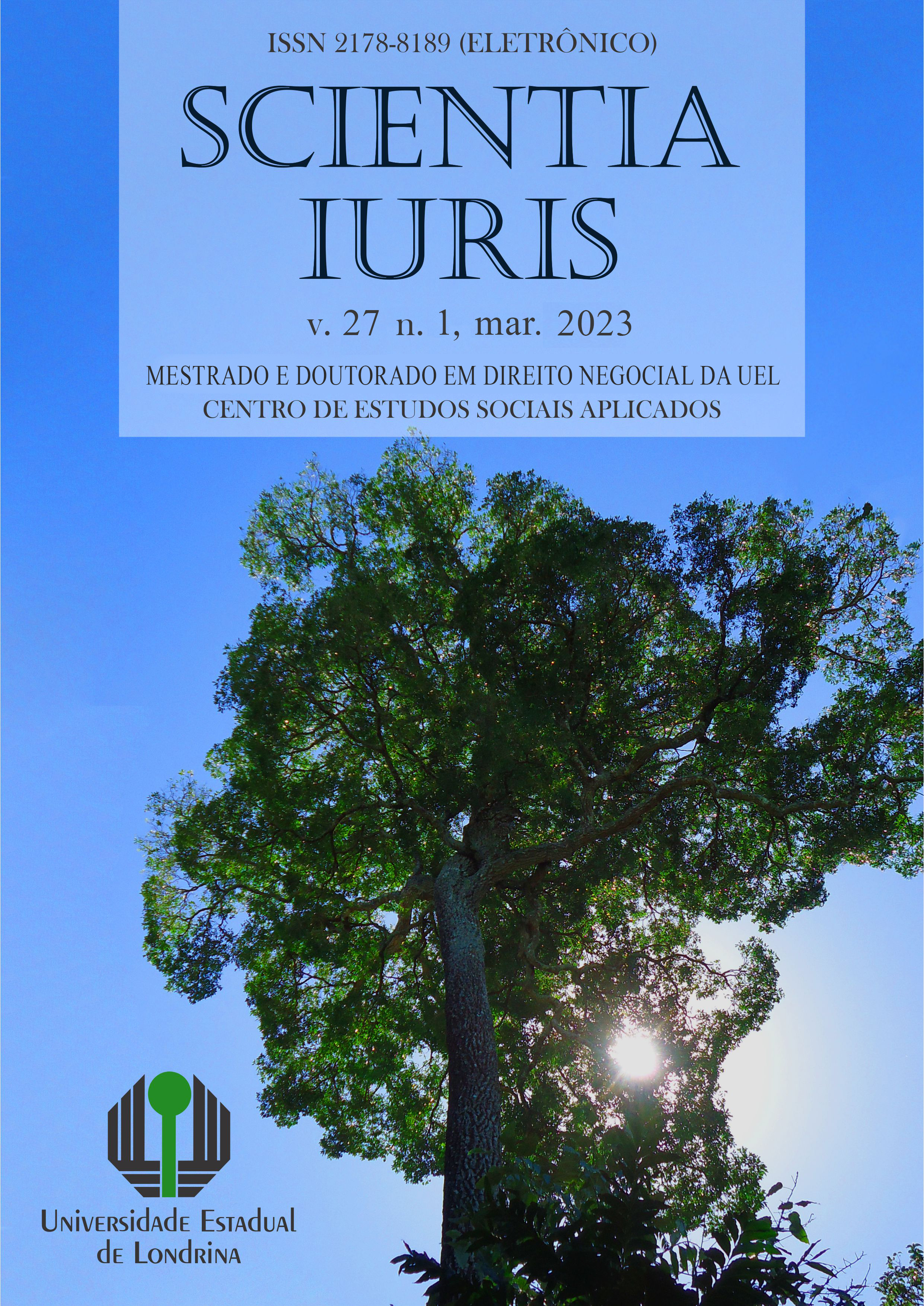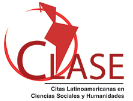Positive communication and negociation techniques: a transforming path in the affective and family relationships of contemporaneity
DOI:
https://doi.org/10.5433/2178-8189.2023v27n1p42Keywords:
Contemporaneity. Family conflicts. Communication skills.Abstract
The social changes of the period called contemporary had a considerable impact on the way of living and relating to individuals. Communication started to be valued at its maximum potential, at a time marked by globalization, technology, fluidity, ruptures and innovations. Human coexistence and its relationships of affection sedimented diverse family arrangements, base done quality and democracy, causing conflicts duetothe new roles of cohabitants and the destandardization of previous models. Familiar webs, considered complex because of the involvement of various actors and, thus, multiplicities of emotions, feelings, opinions and positions, require the promotion of diverse communication skills, whichenable its members to solve their own conflicts, in order to avoid the disruption of families in the face of new social demands of contemporary times. Scrutinizing contemporary Chang es in the evolution of families and offering positive responses to pacification based on a new communicational model was the main objective of this text. The study focuses on qualitative research through bibliographic, documentary research, narratives, ideas and individual observations by this researcher.
Downloads
References
BAUMAN, Zygmunt.Amor Líquido. Sobre a fragilidade dos laços humanos. Tradução de Carlos Alberto Medeiros. Rio de Janeiro: Jorge Zahar, 2004.
BAUMAN, Zygmunt. Modernidade Líquida. Rio de Janeiro: Jorge Zahar, 2001.
BUCHER-MALUSCHKE, J. S. N. F.; COSTA I. I. Family Therapy in Brazil: Memoryand Development. In: KIT, S. N. G. (Org.). Global Perspectives in Family Therapy: Development, Practice, Trends.New York/Sussex: Brunner-Routledge, 2003.
BUCHER-MALUSCHKE, J. S. N. F. O casal sob novas formas de interação. In: CARNEIRO, T. F. (Org.). O casal e a família em transformação. Rio de Janeiro: Nau, 1999.
CARNEIRO, T. F. (Org.). Relações Conjugais em transformação e sofrimento psíquico numa sociedade em transição. In: COSTA, I. et al. (Orgs.). Ética, Linguagem e Sofrimento. Brasília: Positiva/ABRAFIPP, 2003.
CARNEIRO, T. F. (Org.). O casal e a família em transformação. Rio de Janeiro: Nau, 1999.
CARVALHO, M. C.N.; BARBOSA, C. M. Subjetividade, relações sociais e sistema de justiça, Psicol Argum., São Paulo, v. 33, n. 82, p. 13, jul./set. 2015.
FREIRE, Paulo. Pedagogia da Autonomia. São Paulo: Editora Paz e Terra, 2005.
FRIDMAN, Luis Carlos. Pós-modernidade: sociedade da imagem e sociedade do conhecimento. Hist. Cienc. Saúde-Manguinhos, Rio de Janeiro, v. 6, n. 2, p. 353-375, out. 1999. Disponível em: http://www.scielo.br/scielo.php?script=sci_arttext&pid=S0104-59701999000300007&lng=pt&nrm=iso. Acessoem: 10 jul. 2020.
GANANCIA, Dalièle. Justiça e Mediação Familiar: Uma Parceria a serviço da Co-Parentalidade. Revista do Advogado, São Paulo, n. 62, p. 7, mar. 2001.
GIDDENS, Anthony. A transformação da intimidade: sexualidade, amor e erotismo nas sociedades modernas. São Paulo: Unesp, 1993.
GROPPO, L. A. Teorias pós-críticas da juventude: juvenilização, tribalismo e socialização ativa. Revista Latinoamericana de Ciencias Sociales, Niñez y Juventud, v. 13, n. 2, p. 573, 2015.
HARVEY, D. Condição Pós-moderna. São Paulo: Loyola, 1989.
LIPOVETSKY, Gilles. Os tempos hipermodernos. Tradução de M. Vilela. São Paulo: Barcarolla, 2004.
LYOTARD, Jean-François. A condição pós-moderna. São Paulo: José Olympio, 2002.
MENEZES, J. B.; AMORIM, A. M. A. Os impactos do COVID-19 no direito de família e a fratura do diálogo e da empatia. Civilistica, v. 9, n. 1, p. 1-38, mai. 2020.
MORAES, M. C. B. A nova família, de novo - Estruturas e função das famílias contemporâneas. Pensar, Fortaleza, v. 18, n. 2, p. 587-628, mai./ago. 2013.
MORGADO, L. V. et al. Ciclo vital da família: A comunicação entre pais e filhos na fase adolescente. CONGRESSO INTERNACIONAL DE CIÊNCIA, TECNOLOGIA E DESENVOLVIMENTO, CIÊNCIA E TECNOLOGIA PARA O DESENVOLVIMENTO SOCIAL, III, 2014, Taubaté. São Paulo: UNITAU, 2014.
NICOLACI-DA-COSTA, Ana Maria. A passagem interna da modernidade para a pós-modernidade. Psicol. Cienc. Prof., Brasília, v. 24, n. 1, p. 82-93, mar. 2004. Disponível em: http://www.scielo.br/scielo.php?script=sci_arttext&pid=S1414-98932004000100010&lng=pt&nrm=iso. Acesso em: 10 jul. 2020.
OLIVEIRA, Marcia L. C. Um espectro ronda o mundo - Boaventura de Souza Santos e as primeiras lições da pandemia. Pensares em Revista, São Gonçalo, n. 18, p. 212-220, 2020.
PEREIRA, Caio Mário da Silva. Instituições de Direito Civil: direito de família. 26.ed. Rio de Janeiro: Forense, 2018.
PEREIRA, Tânia da Silva; MELO, Carolina Campos. Infância e juventude: os direitos fundamentais e os princípios constitucionais consolidados na Constituição de 1988. Revista Trimestral de Direito Civil, Rio deJaneiro, n. 3, p. 89-109, jul./set. 2000.
PINTO, Ana Célia Roland Guedes. O conflito familiar na Justiça - Mediação e o exercício dos papéis. Revista do Advogado, São Paulo, n. 62, p. 65, mar. 2001.
ROSENBERG, M. B. Comunicação não violenta - técnicas para aprimorar relacionamentos pessoais e porofissionais. São Paulo: Editora Ágora, 2006.
ROUDINESCO, Elisabeth. A família em desordem. Rio de Janeiro: Zahar, 2003.
SALES, L. M. M.; VASCONCELOS, M. C. A família na contemporaneidade e a Mediação Familiar. In: CONGRESSO NACIONAL DO CONPEDI, 14., 2005, Fortaleza. Anais eletrônicos... Florianópolis: Fundação Boiteux, 2006. Disponívelem: http://www.publicadireito.com.br/conpedi/manaus/arquivos/anais/XIVCongresso/015.pdf. Acesso em: 05 jul. 2020.
SALES, L. M. M.; VASCONCELOS, M. C. Mediação Familiar: Um estudo histórico-social das relações de conflitos nas famílias contemporâneas. Fortaleza: Expressão Gráfica, 2006.
SALES, Lília Maia de Morais. A família e os conflitos familiares - a mediação como alternativa. Pensar, Fortaleza, v. 8, n. 8, p. 55-59, fev. 2003.
SENNETT, R. A Corrosão do Caráter: Consequências Pessoais do Trabalho no Novo Capitalismo. Rio de Janeiro: Record, 1998.
SERPA, Maria de Nazareth. Mediação de Família. Minas Gerais: Del Rey, 1999.
SINGLY, François de. La réinvention de lafamille. Label France, Paris, n. 39, p. 16-17, abr. 2000.
SIQUEIRA, Vinicius. Medo Líquido-Zygmunt Bauman: uma resenha. Colunas Tortas. Disponível em:https://colunastortas.com.br/medo-liquido-zygmunt-bauman-uma-resenha/. Acesso em: 04 jun. 2016.
STONE, Douglas; PATTON, Bruce; HEEN, Sheila. Conversas difíceis. Rio de Janeiro: Elsevier Editora, 2011.
URY, William. Como chegar ao sim com você mesmo. Rio de Janeiro. Sextante, 2015.
VASCONCELOS, C. E. Mediação de Conflitos e Práticas Restaurativas. São Paulo: Editora Método, 2015.
VIRILIO, P. O Espaço Crítico. São Paulo: Editora 34, 1993.
Downloads
Published
How to Cite
Issue
Section
License
Copyright (c) 2023 Scientia Iuris

This work is licensed under a Creative Commons Attribution 4.0 International License.
The journal reserves the right to modify, in the original text of the submitted article, normative, spelling and grammatical mistakes in order to maintain the cultured standard of language and the credibility of the journal. The journal will respect the authors' writing style. Changes, corrections or suggestions of conceptual order will be sent to the authors, when necessary. In such cases, the articles will be re-examined. The final exams will not be sent to the authors. The published works become the property of the journal, in other words, its total or partial reprinting is subject to the express authorization of the journal. In all subsequent citations, the original source of publication shall be cited and in the case of Photographic Speeches, shall be approved by the original author. The opinions expressed by the authors of the journal's articles are of their sole responsibility.


















